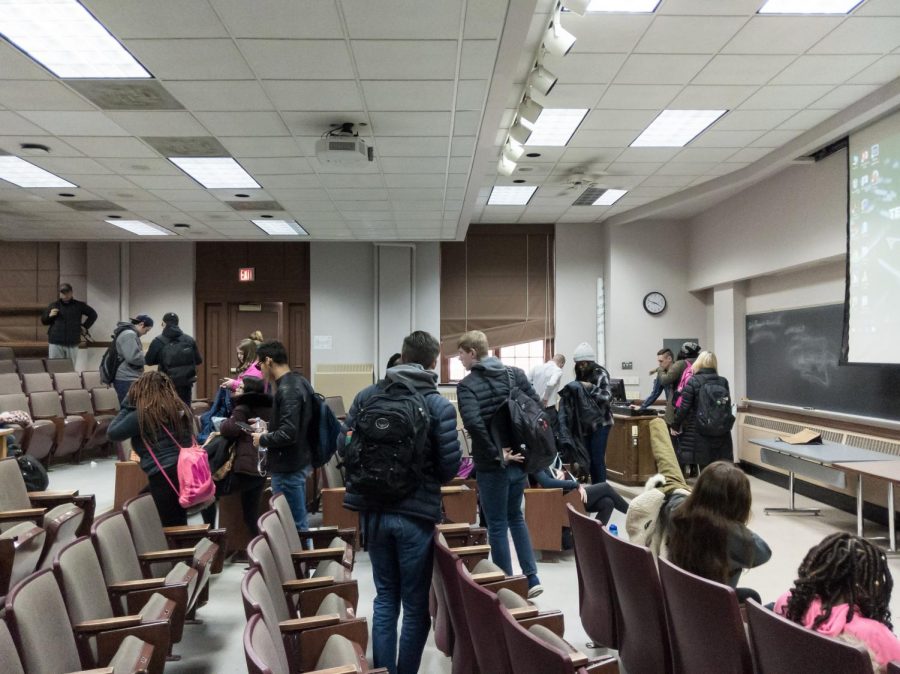Political Science Department to add concentrations
Students leaving the classroom when a politic science class is over at room 103, Mumford Hall.
Apr 19, 2018
The University’s Department of Political Science will be taking a new approach to the major by integrating concentrations, starting in fall 2018.
While a general political science concentration is still offered, concentrations in citizen politics, civic leadership, international relations, law and power, public policy and democratic institutions and world politics are now open for student selection.
Robert Pahre, department head and professor, said the new requirements for the concentrations will make it easier for students to pursue a double major, a minor or a certificate program.
“We reduced our requirements for courses in the cognate fields and made it easy for students with a second major, or minor in another department, to use those credentials to satisfy the cognate requirement,” Pahre said in an email. “We wanted the major to be open to other fields intellectually because many students combine majors such as political science and economics, history or mathematics.”
Pahre said the revisions have been in the works for approximately three years.
Get The Daily Illini in your inbox!
“That sounds longer than it really was, because we did a strategic visioning process in the middle of it all,” he said.
Pahre said the transition into the concentrations should be easy for most students.
“Typically, those students who opt in because they’d like to complete a concentration have already been taking courses in an area that we now call a concentration,” he said.
Joseph Hinchliffe, director of undergraduate studies, professor and adviser, said the decision for current juniors to opt into a concentration may be a bit more complicated.
“(Incoming seniors) might have to go back and take courses to align with the new major; and that might not be attractive, or (incoming seniors) have started on a second major or a minor and would rather work on that than go back and take additional courses for this major,” Hinchliffe said.
Hinchliffe said enrollment in a concentration will only be limited by the ability of the department to offer classes in particular areas.
“There is no system in place to say only so many students can do one concentration or another,” he said.
While the popularity of different concentrations may vary over time, Hinchliffe does not expect large adjustments or alterations to the major anytime soon.
“(A concentration) would have to not be functioning for a long time for a big adjustment to be made,” he said. “It would also require a major realignment in faculty research and teaching for that to take place, so I do not think that’s going to happen.”
According to Hinchliffe, the new program will give students more guidance in their advanced course choices, and many students have already indicated interest in the various concentrations.
“Several students said they liked this better as a way to document their accomplishments, and I think that’s positive,” he said.
Nicolas Roman-Ahlgrim, freshman in LAS, said in an email he thinks the concentrations will help students discover what areas of political science they feel most passionate about.
Roman-Ahlgrim said he will declare a concentration in world politics, because topics in this area of political science are what drew him to the major in the first place.
“In a sense, I think that having concentrations will motivate students to work even harder because they are following a path they are passionate about,” he said.






